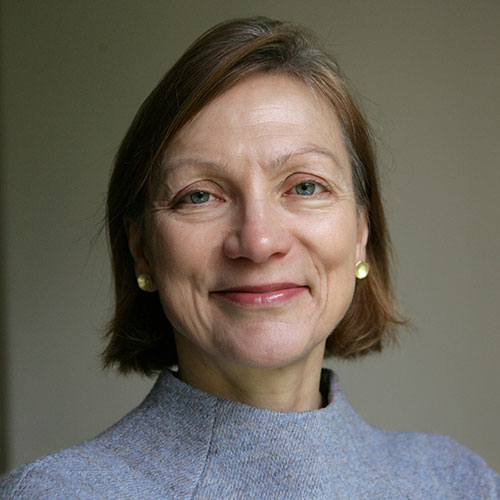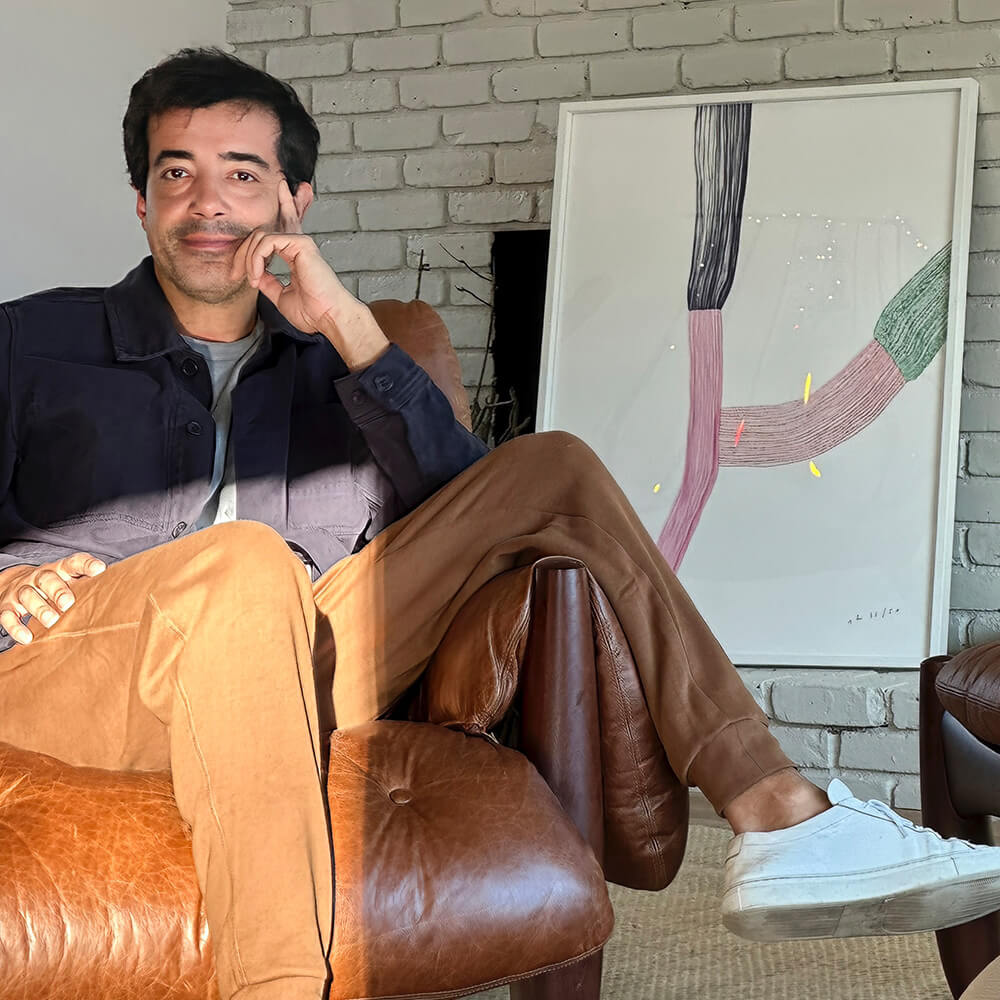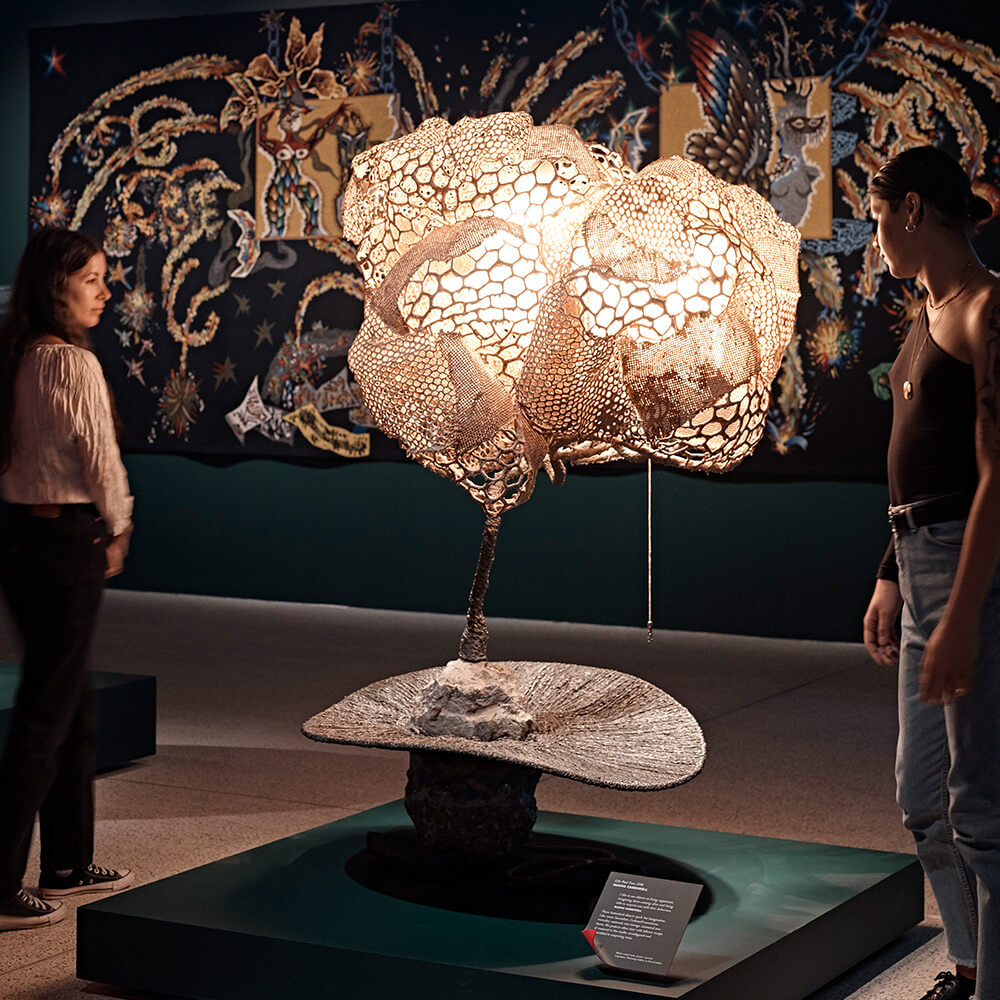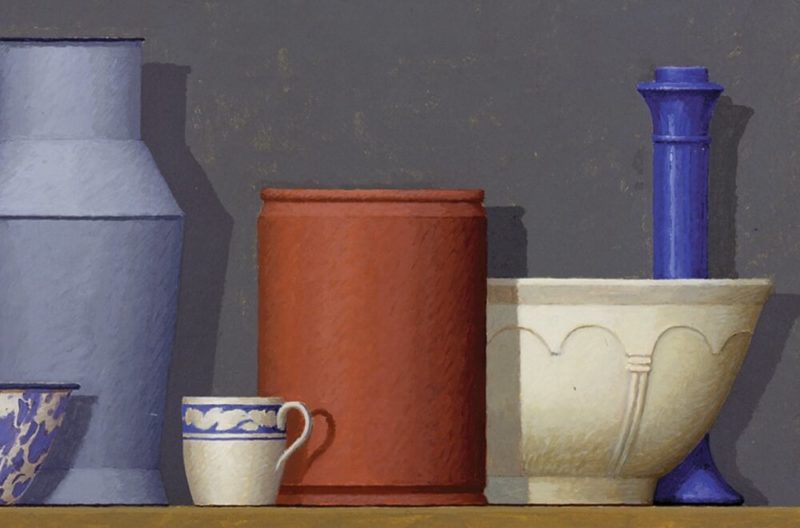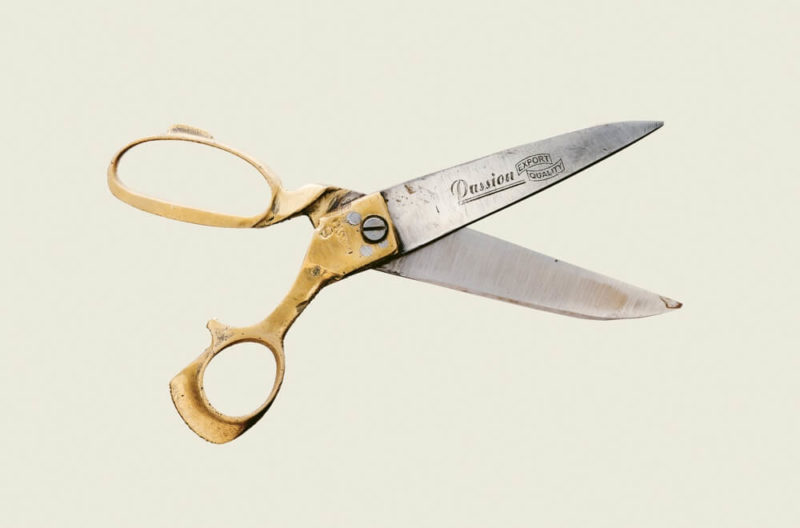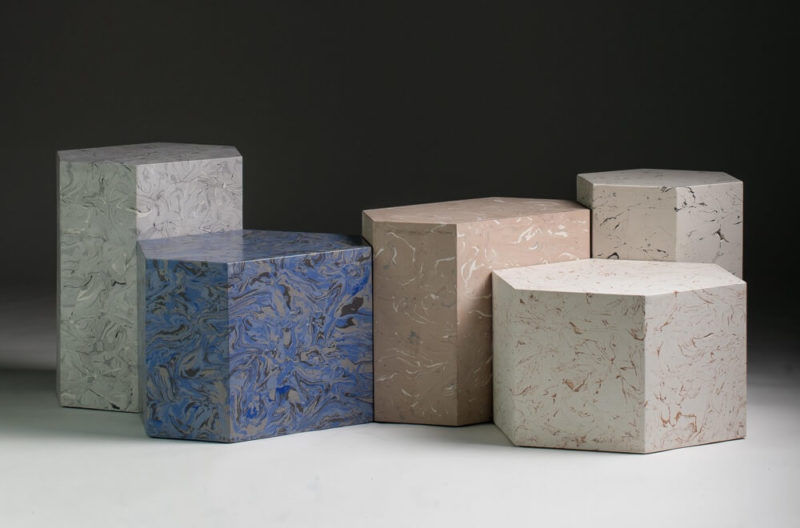Sarah Myerscough Gallery
The gallerist opens a new space for artist-designer-makers in an old boathouse in Barnes, London.
ON 10TH JUNE, Sarah Myerscough Gallery opened a new space in leafy Barnes, just around the corner from the River Thames. The gallery is a former boat house, long and narrow, which had been converted into offices but is now stripped back to wood-floored, wood-ceilinged simplicity. You can imagine the ghosts of past rowing boats hanging here, beautiful structures of papier-mâché, or plywood and fibreglass. Known for her commitment to a group of international artist-designer-makers who operate at the intersection of art and design, craft and technology, this space will enable Myerscough to present focussed exhibitions, outside the art fair context. We caught up with her two days before the opening.
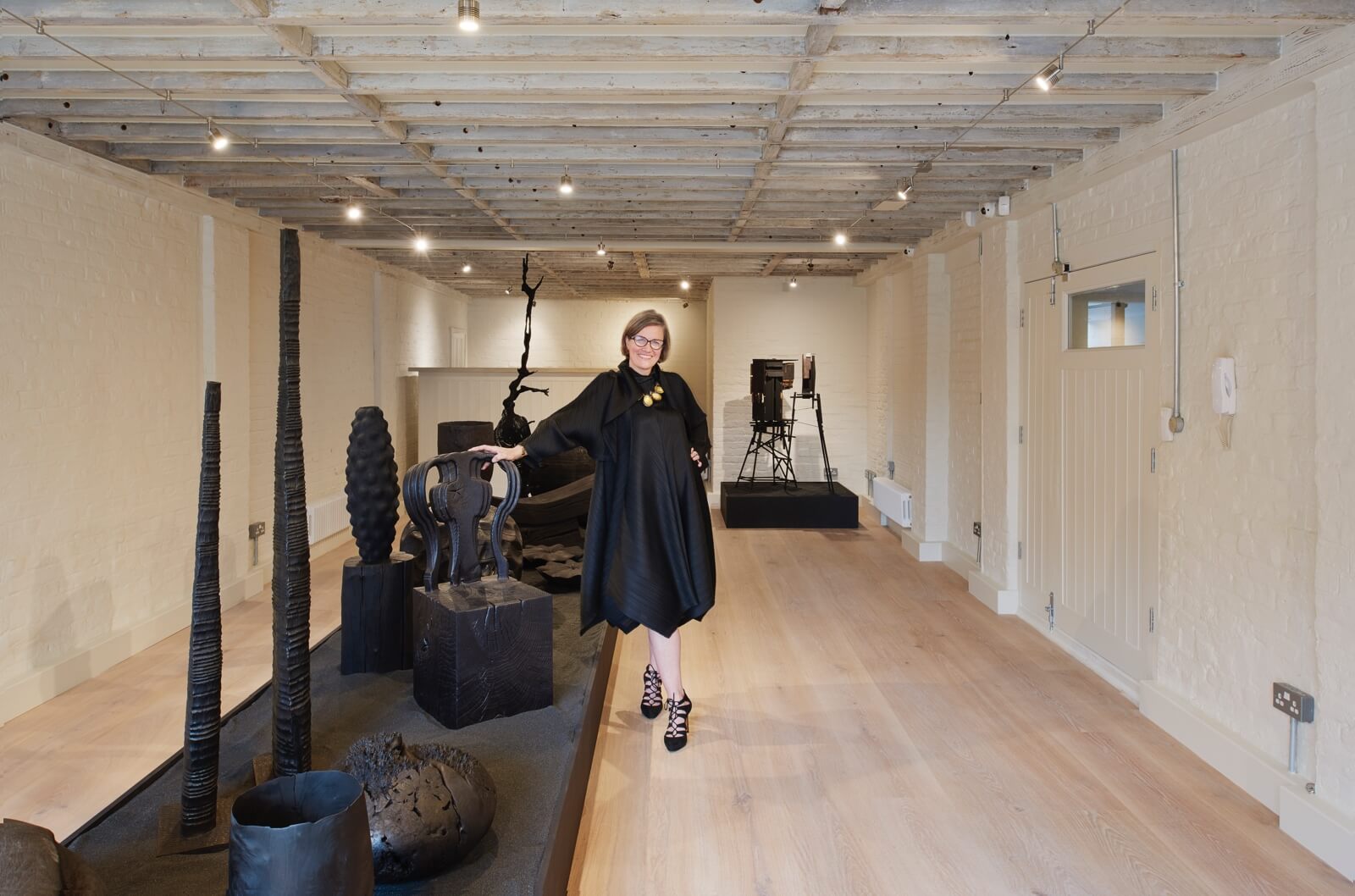
Sarah Myerscough in her new gallery
COURTESY: Sarah Myerscough Gallery
“I have been quite nomadic for the last three years since I closed my space in Mayfair,” Myerscough explains. “But I wanted to be able to do projects, to curate exhibitions, to show people craft and design in situ. It creates part of the personality of the gallery. It is what I need to balance the fairs.” Sarah Myerscough Gallery is a significant presence at the world’s leading art fairs: from PAD London to New York’s Salon Art + Design, to Design Miami and FOG Design+Art San Francisco. This gallery will enable Myerscough, she explains, “to look at the way different designers work together, bringing people together to create special shows, with a nice dialogue and an interesting narrative — which is what craft and design is all about, that lovely richness of the work. I want people to see and to understand that richness.”
The Old Boathouse is just a river-walk from Myerscough’s home, but it needed a fair bit of work. “When I came upon it it was a very ugly sixties office space and we had to strip it right back to the bare essentials. We took the unattractive tiles down and revealed these beautiful beams across the roof. We stripped the plaster off to reveal the brickwork, and we found this beautiful oak floor, so it now provides a lovely backdrop for the art work.”
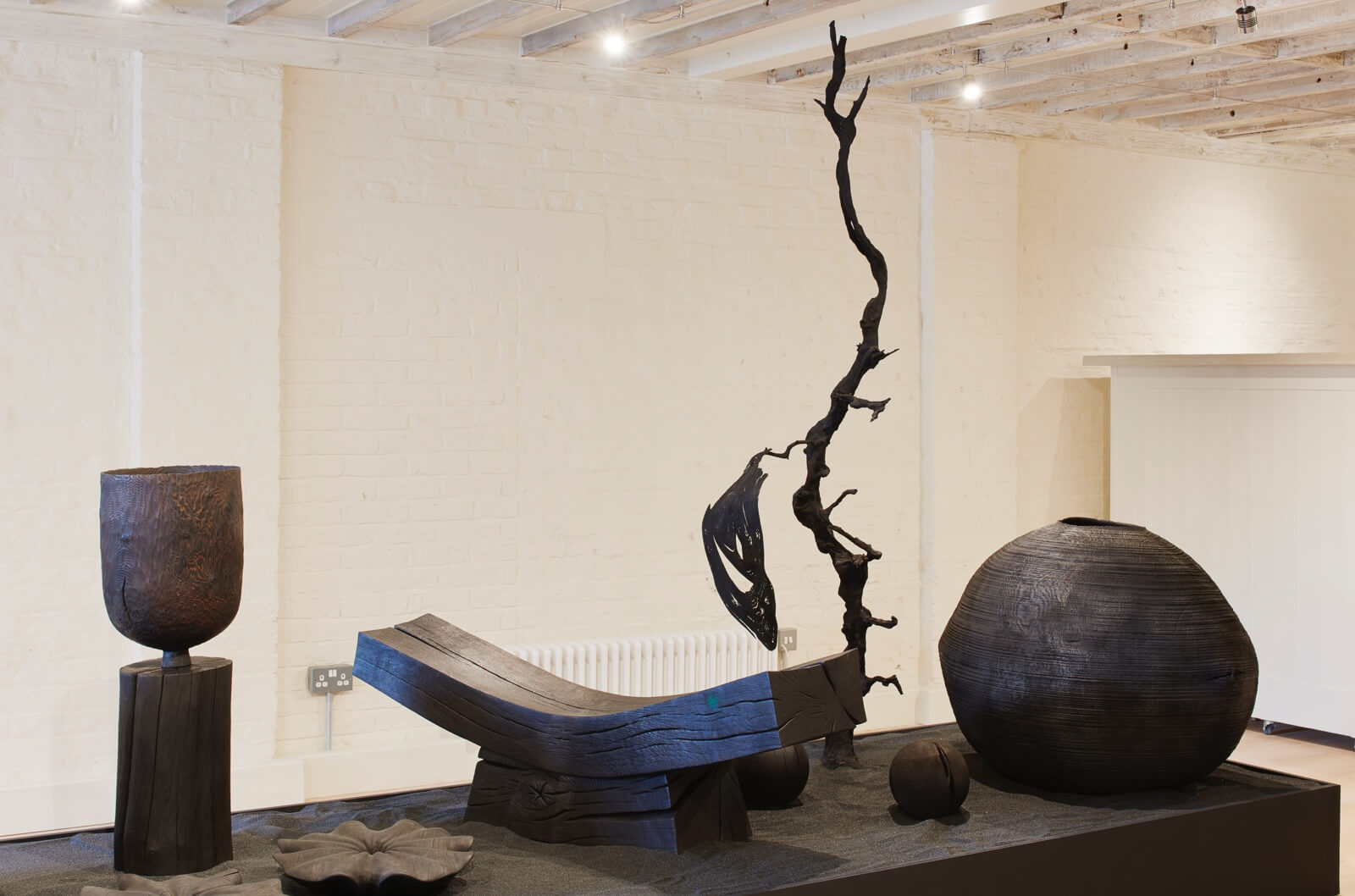
From left to right: Max Bainbridge, ‘Burnt Chestnut Crucible’, 2019; Christopher Kurtz, ‘Smoked Vessel 1’ and ‘Smoked Vessel 2’, 2019; Jim Partridge and Liz Walmsley, ‘Scorched Bench’, 2019; Wycliffe Stutchbury, ‘The Rodd 3’, 2019 and ‘Rooksnest 2’, 2019; Benjamin Planitzer, ‘Tree’, 2019 and ‘Vessel’, 2019.
COURTESY: Sarah Myerscough Gallery
The gallery’s focus is on work that revels in the tactility and texture of organic materials, and the creative partnership of human hand and design intelligence. For this opening show Myerscough has brought the body of work she gathered together for ‘Scorched’ at London Craft Week in May. That show was commissioned for the ornate and gilded interior of Fitzrovia Chapel in central London. Here Myerscough has created a simple rectangular platform of black volcanic sand in which to display these striking objects, all created using the traditional process of shou-sugi-ban, or yakisugi — a technique, originating in Japan in the 18th century, which involves charring the surface of wood.
“I absolutely love scorched furniture,” Myerscough says, “Maarten Baas is one of my inspirations and also John Makepeace. And then I looked at the artists I work with a lot, and many of them are already using the scorching process, like Jim Partridge and Gareth Neal. I built on that to create a landscape of objects.” It makes an impressive debut.
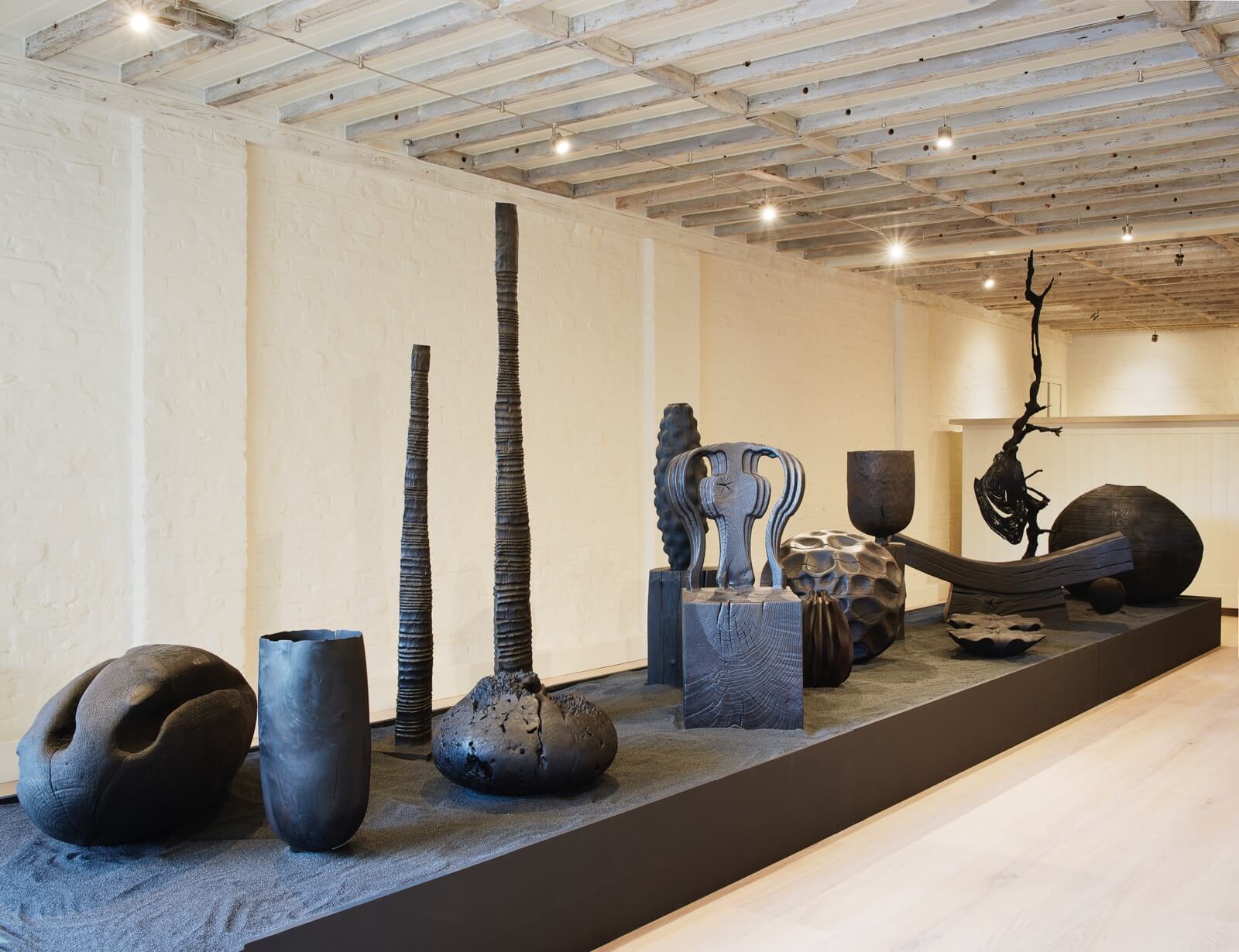
Installation view, ‘Scorched’
COURTESY: Sarah Myerscough Gallery
Key pieces include an astonishing large turned wooden vessel by Benjamin Planitzer, part of an installation of carved and turned charred objects; a gorgeous, soft-feathery-surfaced ‘Burnt Chestnut Crucible’ by Max Bainbridge, of artist-duo Forest and Found; Gareth Neal’s bold ‘Hack Chair No 2’; some beautiful pieces by Eleanor Lakelin and Marc Ricourt, and two delightfully quirky structures by another team of artist-designers, David Gates and Helen Carnac. There are also two ‘Smoked Vessels’, made in the shape of large leaf-like platters, from American black walnut, by American wood specialist Christopher Kurtz, who will be showing a new piece with Sarah Myerscough Gallery at ‘Masterpiece’ London, opening on Wednesday 26th June.
‘Scorched’ runs until 30th August. Prices range from £1,800 – £21,600.
Sarah Myerscough Gallery – is a London art gallery representing contemporary painters, photographers and international craft and design.
